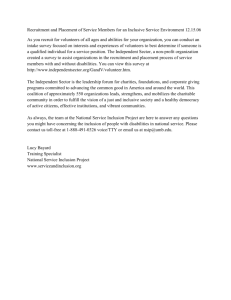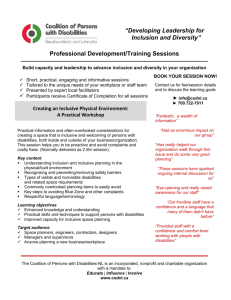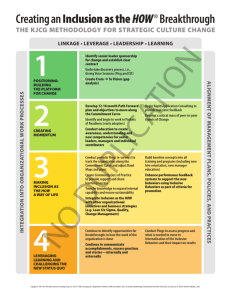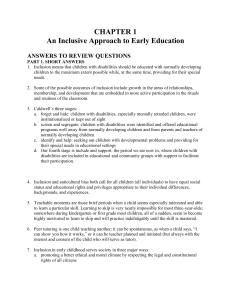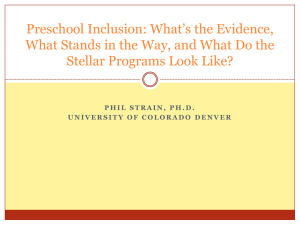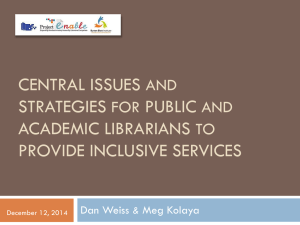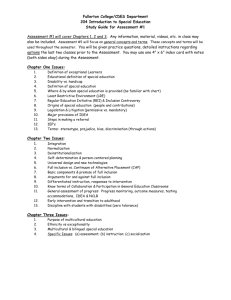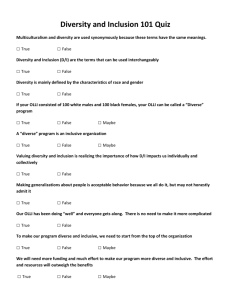Philosophy of Inclusion for Students with Disabilities
advertisement
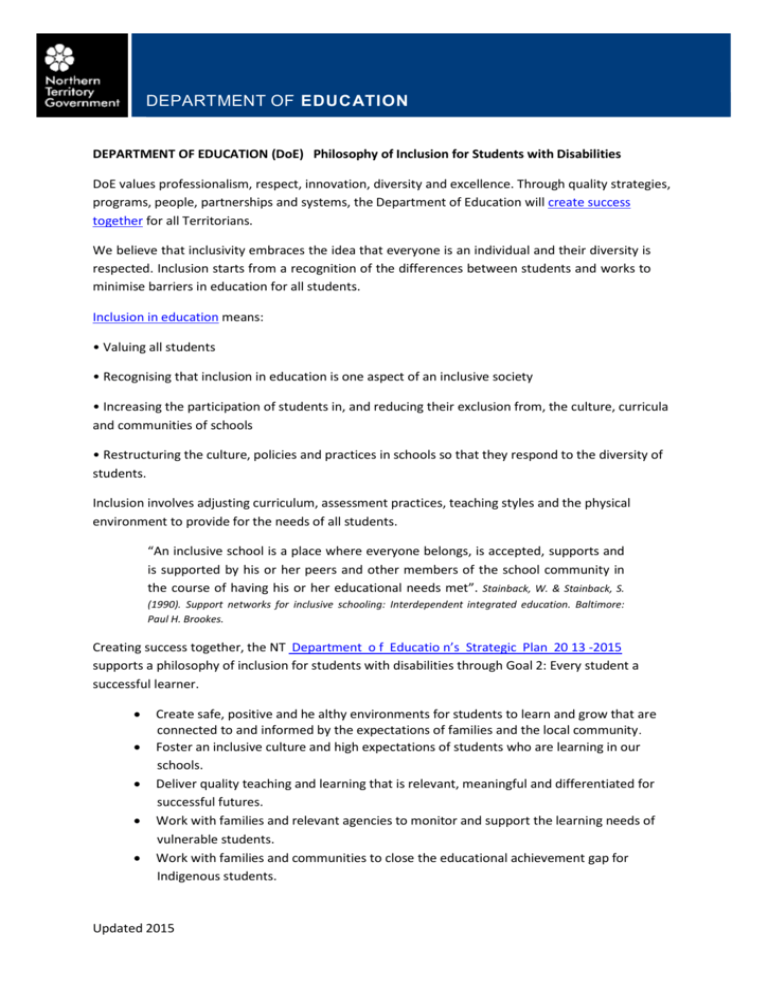
DEPARTMENT OF EDUC ATION DEPARTMENT OF EDUCATION (DoE) Philosophy of Inclusion for Students with Disabilities DoE values professionalism, respect, innovation, diversity and excellence. Through quality strategies, programs, people, partnerships and systems, the Department of Education will create success together for all Territorians. We believe that inclusivity embraces the idea that everyone is an individual and their diversity is respected. Inclusion starts from a recognition of the differences between students and works to minimise barriers in education for all students. Inclusion in education means: • Valuing all students • Recognising that inclusion in education is one aspect of an inclusive society • Increasing the participation of students in, and reducing their exclusion from, the culture, curricula and communities of schools • Restructuring the culture, policies and practices in schools so that they respond to the diversity of students. Inclusion involves adjusting curriculum, assessment practices, teaching styles and the physical environment to provide for the needs of all students. “An inclusive school is a place where everyone belongs, is accepted, supports and is supported by his or her peers and other members of the school community in the course of having his or her educational needs met”. Stainback, W. & Stainback, S. (1990). Support networks for inclusive schooling: Interdependent integrated education. Baltimore: Paul H. Brookes. Creating success together, the NT Department o f Educatio n’s Strategic Plan 20 13 -2015 supports a philosophy of inclusion for students with disabilities through Goal 2: Every student a successful learner. Create safe, positive and he althy environments for students to learn and grow that are connected to and informed by the expectations of families and the local community. Foster an inclusive culture and high expectations of students who are learning in our schools. Deliver quality teaching and learning that is relevant, meaningful and differentiated for successful futures. Work with families and relevant agencies to monitor and support the learning needs of vulnerable students. Work with families and communities to close the educational achievement gap for Indigenous students. Updated 2015 DEPARTMENT OF EDUC ATION There are Commonwealth legislative requirements to ensure all students have equitable access to education. These include the Disability Discrimination Act 1992 and Disability Standards for Education 2005. In the Northern Territory there is the Anti-Discrimination Act 1992. Policies and resources to support the inclusion of students include: PowerPoint presentations Parent brochure Factsheets A set of support guidelines Teachers have a professional responsibility to address inclusivity in their practice, and ensure students with disabilities or additional learning needs are able to access education on the same basis as their peers. To support teachers in their endeavour to provide inclusive practice, The Departm ent o f Educatio n’s Strategic Plan 2013-2015 Goal 3: Quality Leaders, Quality Teachers, Quality Schools has made provision for online professional learning opportunities. DOE has a number of choices for parents to choose where they would like to send their child for schooling. These include enrolment in a regular school with appropriate level of support, enrolment into a specialised setting such as a Special School and Centres. As an organisation within DOE, School Support Services and regional support team, contribute to improved educational outcomes for students. The Whole School Approach to Improving Student Learning Principals, as leaders of the school, are accountable for student performance and achieving the school’s improvement goals and performance targets through effective, quality education services. In aligning the Students with Disabilities Policy implementation with the Accountability and Performance Improvement Framework (APIF), principals can: Build the capacity of the school Be accountable for the learning outcomes and wellbeing of students Ensure that all school staff meet expected standards of service provision Ensure the school complies with relevant legislation, regulations and organisational standards including the management of finances, assets and other resources. Updated 2015
